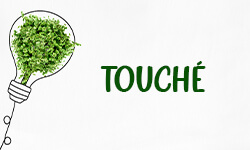
Many people often search for the definitions of English words and phrases. However, sometimes they use words simply because they are popular, without knowing their true meanings or origins. In some cases, they may even misspell words, leading to fatal errors in academic writing. This article aims to provide a clear understanding of the term “touché,” including its correct spelling and historical background.
Definition of “touché”
“Touché” is a term borrowed from French. It is the past participle of the verb “toucher,” meaning “to touch.” In fencing, it was originally used to acknowledge a hit by the opponent. In everyday speech, “touché” is often used in conversation to acknowledge a clever or effective point made by someone else, especially in the context of a debate, argument, or witty exchange. The word is typically used as a standalone expression, following a statement or remark to concede a point or acknowledge the effectiveness of an argument.
Use of “touché” in a sentence
The word “touché” functions as an exclamation. It is used independently to express acknowledgment, conceding a point, or recognising a clever remark made by someone else. In the context of an interjection, it is often used independently to acknowledge a valid or clever point made by someone else, especially in a conversation, debate, or exchange of witty remarks.
How to spell “touché” correctly
The word “touché” has its origins in the French language. It is the past participle of the verb “toucher” which means “to touch” in French. Originally associated with the sport of fencing, “touché” was used to acknowledge a hit by an opponent. Over time, it has transitioned into more general usage in English and other languages, particularly in the context of acknowledging a clever or effective point made by someone else in a conversation, debate, or exchange of remarks.
- Toucher – French verb meaning “to touch”
Correct spelling
touché
Wrong spelling
touche
touchee
twochee
The frequent misspelling of “touché” may be attributed to a few factors. The acute accent over the “e” in “touché” (é) is a distinctive feature in French. Accents can be challenging for English speakers to remember or reproduce correctly. Moreover, the phonetic pronunciation of “touché” might lead to variations in the spelling, as people may attempt to replicate the sounds, they hear without considering the specific accent marks. Furthermore, in casual contexts, especially in online communication where accent marks can be cumbersome, individuals might opt for simpler spellings, contributing to misspellings.
Synonyms for “touché”
Using different words to express “touché” can improve the variety of expressions, make communication clearer, prevent repetition and redundancy, customize the language to fit the audience or situation, and enhance stylistic diversity in your writing. In the following sentences, you will find synonyms for “touché” along with example sentences.
| Synonym | Examples |
| Fair point | After looking at your evidence, you’re right. Touché! |
| After looking at your evidence, you’re right. Fair point! | |
| Point taken | Your explanation makes sense. Touché! |
| Your explanation makes sense. Point taken! | |
| Well said | Your speech was articulate and persuasive. Touché! |
| Your speech was articulate and persuasive. Well said! | |
| You got me | I hadn’t thought of it that way before – well played, touché! |
| I hadn’t thought of it that way before – well played, you got me! |
FAQs
In everyday language, “touché” is an expression used to acknowledge and concede a clever or effective point made by someone else in a conversation, debate, or exchange of remarks. It indicates recognition of the other person’s skill or wit.
The French say “touché” to acknowledge a hit in fencing, expressing that their opponent has made a valid and skilful point. Over time, the expression has transitioned into broader usage, both in French and in other languages, to acknowledge clever or effective points made in various discussions or debates.
No, “touché” does not mean “yes.” “Touché” is an expression used to acknowledge and concede a clever or effective point made by someone else in a conversation, debate, or exchange of remarks. It’s not a direct equivalent to saying “yes” but rather a way of acknowledging the merit or skill in the other person’s argument or remark.
You use “touché” in a sentence to acknowledge and concede a clever or effective point made by someone else. It is often employed in response to a well-made remark or argument in a conversation or debate.
Synonyms for “touché” include:
- Well said
- Good one
- You got me
- Fair point
- Point taken
- I concede that point
- Nicely done
- You win this round
- Well played
- ✓ Free express delivery
- ✓ Individual embossing
- ✓ Selection of high-quality bindings
